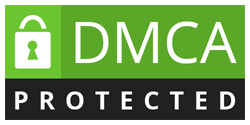LEGAL AND ETHICAL IMPLICATIONS OF CROSS-CULTURAL LEADERSHIP
The SLP for this module involves a self-assessment on ethics. Begin by completing What’s Your Ethics IQ?
Congratulations, you have completed The Ethics Guy Quiz and you scored 4 out of 5. The Ethics Guy says, “Very Good” ________________________________________ All the questions in the quiz along with their answers are shown below. Your answers are bolded. The correct answers have a green background while the incorrect ones have a red background. 1) You wake up one morning with the flu. Would you: • Stay at home and rest. • Stay at home and work. • Go to work but avoid socializing with people. • Go to work but socialize only with the people you don’t like. The flu is contagious and potentially deadly. As I explain in my article, “Should You Go to Work When You’re Sick?,†the ethical obligations to prevent harm to others and to treat ourselves with compassion require that we stay home and rest when we have the flu. Loyalty to one’s company and the desire to avoid being a burden to one’s co-workers are noble impulses, but you’ll do more harm than good by going to work sick. And although working at home is better than dragging yourself into the office, you’re entitled to convalesce when you’re not feeling well. Everyone, including you, will be better off if you take a few days or even longer to restore your health.
2) You’re having breakfast in a crowded restaurant and overhear two colleagues discussing confidential information about a client. They mention the client by name. Would you: • Mind your own business. • Talk with your colleagues about the matter and leave it at that. • Report your colleagues to a supervisor. • Secretly record them with your cell phone video camera and post the clip on YouTube. No one likes confrontations, but sometimes it’s better to do something rather than nothing. The situation is such a time. Most likely, your colleagues aren’t doing this intentionally, but your client’s right to privacy and the reputation of your company may both be damaged if you do nothing. Unless the policy where you work requires you to inform a supervisor, however, blowing the whistle isn’t the right thing to do if this is a first offense, so to speak. After all, you haven’t given your colleagues a chance to correct their behavior. Talking with your colleagues directly is the best way to honor your responsibilities to all parties. Saying something like, “I couldn’t help but notice that you were talking about some confidential things from work, and I wonder if I could hear it, maybe other people could too,†will almost certainly do the trick. The duty to protect confidentiality is derivative of the obligations to prevent harm and respect others. But if your colleagues tell you to get lost (or words to that effect), then it may be time to bring the matter to the appropriate person’s attention at work.
3) You take your 12-year-old son to the local multiplex to see the latest blockbuster. At the box office, you see a sign that says, “Children (up to 11), $6.00. Adults, $11.75.†Would you: • Ask for one adult and one child ticket. • Ask for two adult tickets. • Give your son $6 and have him ask for a ticket. • Buy two adult tickets, watch the film you paid for, then sneak into another auditorium and watch another for free. Business ethics isn’t just about how businesses treat customers; it’s also about how customers treat businesses. Lying at the box office to save a couple of dollars both violates a fair policy and sets a terrible example for your child. It sends him the message, “Do whatever you can to save a few bucks,†and our current economic crisis shows the perils of such thinking. If paying full price for your 12-year-old is too much to bear, you can always watch a movie together at home, or do something that doesn’t cost anything at all.
4) You’re having a romantic dinner and order an expensive bottle of wine as part of the festivities. When the check arrives, you notice that the wine hasn’t been included in the bill. Would you: • Tell the waiter about the oversight. • Keep it to yourself but leave a larger tip than you were planning to. • Keep it to yourself and leave your standard tip. • Use some of the money you’ve saved to donate to your favorite charity. Not telling your waiter about the error takes advantage of him or her and is tantamount to theft; you’re getting something for nothing, and that’s unfair. Whether or not the waiter ends up paying for the mistake out of his or her pocket, it’s wrong to exploit an honest mistake. If your date argues against speaking up, you’ve just seen a major red flag about his or her character. Run the other way…fast!
5) While driving you to lunch, your friend whips out her smart phone and starts checking her e-mail. Would you: • Ask her to stop doing that. • Ignore it. • Tell her to pull over and let you out. • Grab her phone and toss it out the window. As I discuss in my column, “The Ethics of Multitasking,†fiddling with a smartphone while driving is both unproductive and can harm both you and the people with whom you come into contact. As a witness to such behavior, you not only have a right to speak up; you have an ethical obligation to do so. If you do it in a respectful way, you’ll help your friend and prevent injury to her, yourself, pedestrians, and other drivers. If your friend ignores you or makes a snide remark, tell her to pull over and get out. You’re sitting in the organ donor seat, after all.
write a 2 full-page paper (excluding title and references pages) and reflect on the following questions:
What was your score on this assessment?
What did the feedback following the assessment reveal about your patterns of ethical decision making?
How is this instrument “culture-bound�
How would the answers be different in a particularist culture?
What other insights have you gained about your role as a leader in making ethical decisions in a cross-cultural situation?
SLP Assignment Expectations The format for this SLP is less formal than academic papers (e.g., you can use the first person), but you should include headings to organize your thoughts and guide the reader. Cite all sources where you are using information, data, or text from an outside source (including assessments). The SLP should be thoughtful and insightful, integrating results and learnings from the assessment with other activities in the module and course. Your SLP paper must be at least 2 full pages (Excluding Title and References Pages) in length. Your SLP should be edited and error-free. Be sure that you incorporate 2 scholarly sources found in the Assignment, Materials and Bibliography, Required and Optional reading list, and from the Background page into your written analysis.
Universalism versus Particularism. (n.d.). Retrieved from http://www.via-web.de/universalism-versus-particularism/
Mehalu, K. G. (2011). Social responsibility and managerial ethics: A focus on MNC’s. 3rd Global Drucker Forum, Vienna. Retrieved from https://www.druckerchallenge.org/uploads/pics/kidusmehalu.pdf
Velasquez, M., Andre, C., Shanks, S. J., & Myer, M. J. (2014). Ethical relativism. Markkula Center for Applied Ethics. Retrieved from http://www.scu.edu/ethics/practicing/decision/ethicalrelativism.html#sthash.FeFJwTIQ.dpbs
Reidenbach, R. E., & Robin, D. P. (1991). A conceptual model of corporate moral development. Journal of Business Ethics, 10(4), 273.




